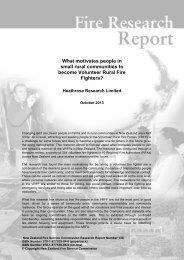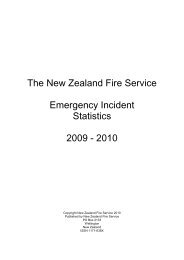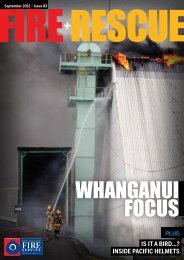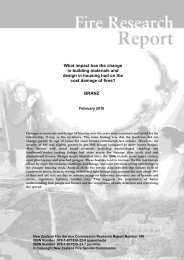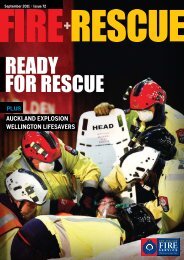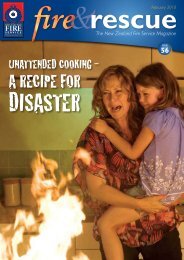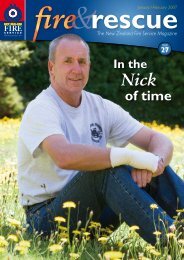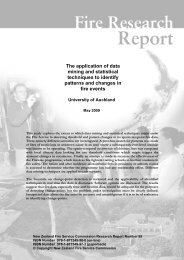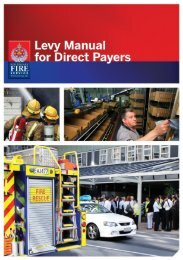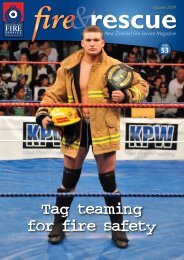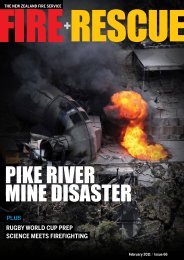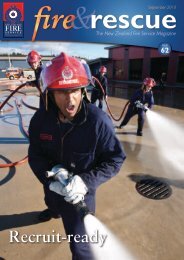Download PDF: Issue 9 - New Zealand Fire Service
Download PDF: Issue 9 - New Zealand Fire Service
Download PDF: Issue 9 - New Zealand Fire Service
Create successful ePaper yourself
Turn your PDF publications into a flip-book with our unique Google optimized e-Paper software.
Photo: Dean Treml<br />
The fi refi ghters’ scientist<br />
Dick Thornton-Grimes is “passionate”<br />
about hazardous substances.<br />
Which is just as well because in just<br />
one month our new hazmat expert<br />
found himself at sea and deep in the<br />
Waikato country-side chasing all<br />
sorts of weird dangerous stuff.<br />
Dick has replaced Tony Haggerty as<br />
the man to call when fi refi ghters are<br />
confronted at incidents with<br />
hazardous substances. These can and<br />
do range from chemical fumigants to<br />
radioactive material.<br />
He says his job is to ensure fi refi ghters<br />
and the public keep safe at such<br />
incidents. He advises firefighters<br />
about handling the incidents with a<br />
view, also, to environmental<br />
implications.<br />
Though based in Auckland, Dick<br />
travels anywhere and his gas detector<br />
is as important as his mobile phone.<br />
He is available to all <strong>Fire</strong> <strong>Service</strong><br />
personnel and is used to handling<br />
calls from throughout the country.<br />
“I am available at the end of a phone<br />
to provide help and support.”<br />
In April he was called out of his bed<br />
in the wee small hours to go to the<br />
Waikato because a truck suspected of<br />
carrying radioactive material had<br />
overturned. Attempts to get him on a<br />
helicopter failed so he made the twoand-a-half-hour<br />
trip by car.<br />
As well as attending and advising at<br />
incidents Dick also trains fi refi ghters<br />
in working around hazardous<br />
materials and provides training and<br />
advice to industry, schools and the<br />
public.<br />
Dick has a professional background<br />
in chemical safety and hails from the<br />
UK. He is currently studying for a<br />
graduate diploma in occupational<br />
safety and health and chairs the<br />
Appointment<br />
hazardous substances technical<br />
liaison committee.<br />
And while confessing to being pleased<br />
to be able to “indulge my passion for<br />
hazardous substances” he likes to<br />
reassure folk that he does not hang<br />
out in a secret laboratory splitting<br />
the atom or writing complicated<br />
equations on the blackboard.<br />
“I don’t have the time for that. I have<br />
to be light on my feet to provide<br />
essential information fi refi ghters need<br />
quickly.”<br />
Besides, the people who do split<br />
atoms and peer into test tubes of<br />
bubbling potions are not the sort best<br />
suited to assist at incidents.<br />
“They are very technical people.” In<br />
his job Dick has to communicate<br />
quick, precise, practical advice of<br />
immediate use to fi refi ghters working<br />
under pressure at incidents.<br />
The <strong>New</strong> <strong>Zealand</strong> <strong>Fire</strong> <strong>Service</strong> Magazine May/June 2005<br />
25



